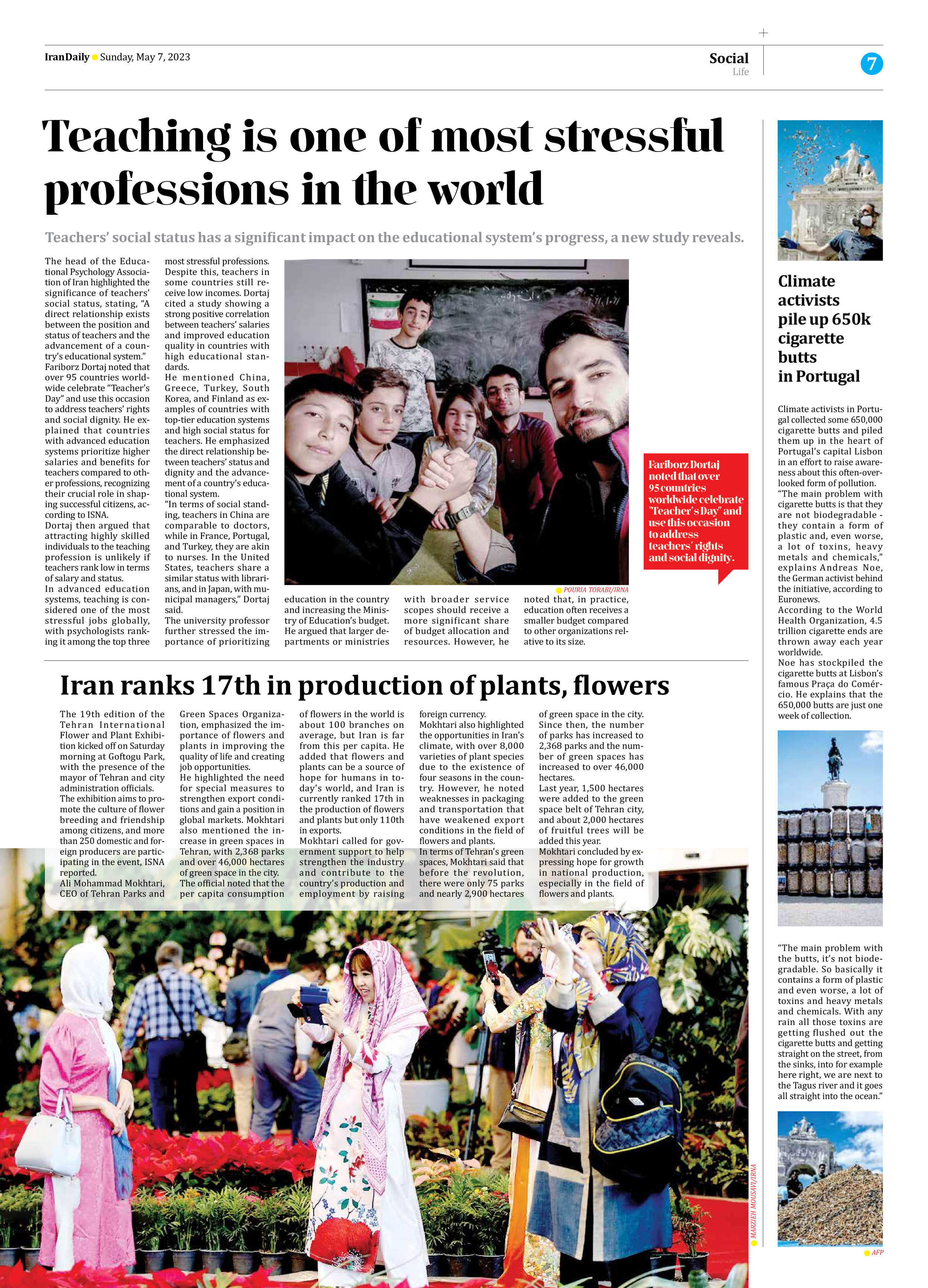
Teaching is one of most stressful professions in the world
Teachers’ social status has a significant impact on the educational system’s progress, a new study reveals.
The head of the Educational Psychology Association of Iran highlighted the significance of teachers’ social status, stating, “A direct relationship exists between the position and status of teachers and the advancement of a country’s educational system.”
Fariborz Dortaj noted that over 95 countries worldwide celebrate “Teacher’s Day” and use this occasion to address teachers’ rights and social dignity. He explained that countries with advanced education systems prioritize higher salaries and benefits for teachers compared to other professions, recognizing their crucial role in shaping successful citizens, according to ISNA.
Dortaj then argued that attracting highly skilled individuals to the teaching profession is unlikely if teachers rank low in terms of salary and status.
In advanced education systems, teaching is considered one of the most stressful jobs globally, with psychologists ranking it among the top three most stressful professions. Despite this, teachers in some countries still receive low incomes. Dortaj cited a study showing a strong positive correlation between teachers’ salaries and improved education quality in countries with high educational standards.
He mentioned China, Greece, Turkey, South Korea, and Finland as examples of countries with top-tier education systems and high social status for teachers. He emphasized the direct relationship between teachers’ status and dignity and the advancement of a country’s educational system.
“In terms of social standing, teachers in China are comparable to doctors, while in France, Portugal, and Turkey, they are akin to nurses. In the United States, teachers share a similar status with librarians, and in Japan, with municipal managers,” Dortaj said.
The university professor further stressed the importance of prioritizing education in the country and increasing the Ministry of Education’s budget. He argued that larger departments or ministries with broader service scopes should receive a more significant share of budget allocation and resources. However, he noted that, in practice, education often receives a smaller budget compared to other organizations relative to its size.







